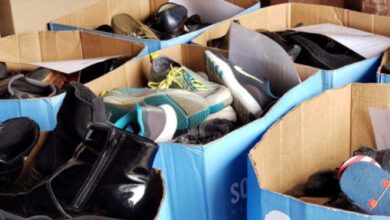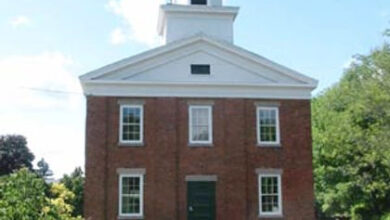Emergency resources available for older adults

Emergency assistance and other resources are available to help ensure the safety of older adults – and all New Yorkers – during the winter months.
“Winter has always been an important time to check in on family, loved ones, and neighbors to make sure they are safe,”said Greg Olsen, Director of the New York State Office for the Aging. “This kind of outreach is even more important now, during the pandemic, as older adults, persons with disabilities, and the chronically ill face even more extreme levels of social isolation that can make them especially vulnerable to winter safety risks at home.”
Emergency Heating Assistance through HEAP
Individuals facing a home-heating emergency may be eligible for assistance through the Home Energy Assistance Program (HEAP), which helps low-income people pay the cost of heating their homes. The emergency benefit opened on January 3, 2022 and is available for low-income older adults and other New Yorkers whose home heating is either shut off or scheduled to be shut off, as well as for individuals who are running out of home heating fuel or other deliverable heat sources. Learn more at https://otda.ny.gov/programs/heap/#emergency-benefit.
Regular HEAP Benefits
Lower-income New Yorkers may also be eligible for regular (non-emergency) HEAP benefits to help pay for heating your home. Eligibility and benefits are based on income, household size, the primary heating source, and the presence of a household member who is under age six, age 60 or older, or permanently disabled. Benefits opened on October 1, 2021. More information is available at https://otda.ny.gov/programs/heap/#regular-benefit.
Reporting a Dangerous Living Condition
Neglect (including self-neglect) is the most prevalent form of elder abuse. It can include being deprived of enough food, water, or heat. “For individuals with a chronic illness or living in an unsafe environment, the consequences can be catastrophic during cold weather,” Olsen said.
If you are concerned about an older adult’s living situation during the winter months and are unable to assist, you can call Adult Protective Services at 1-844-697-3505 or contact the local social services department’s Adult Protective Service bureau using the directory at https://ocfs.ny.gov/directories/localdss.php.
New Yorkers concerned about the safety of an older adult at home can also contact their county Office for the Aging using the online directory at https://aging.ny.gov/local-offices or contact the NY Connects helpline at 1-800-342-9871.
Space Heaters and Supplemental Heat Safety
“Unattended, improperly vented or malfunctioning space heaters pose a major fire risk,” Olsen added. Below are some tips to ensure you or a loved one is using these supplemental heat sources safely.
•If you use a fireplace, wood stove, or portable kerosene heater to stay warm, be sure there is adequate ventilation to the outside. Without enough fresh air, carbon monoxide fumes can build up in your home.
•Never use a natural gas or propane stove/oven to heat your home.
•Follow all safety precautions when using wood stoves, space heaters, electric heaters, kerosene heaters, and pellet stoves.
•Now is a good time to test smoke and carbon monoxide alarms – and to do so at least monthly. Be sure to also replace batteries at least once a year, and replace alarms that are ten years or older. http://For additional safety information, please see the Supplemental Space Heaters Guide developed by the New York State Department of Health, https://www.health.ny.gov/publications/3104.pdf.
For additional safety information, please see the Supplemental Space Heaters Guide developed by the New York State Department of Health, https://www.health.ny.gov/publications/3104.pdf.
“County Offices for the Aging are available to assist with home safety assessments to reduce risks and help identify potential hazards,” Olsen added. To reach your county office, use the online directory at https://aging.ny.gov/local-offices or contact the NY Connects helpline at 1-800-342-9871.
Provided information





